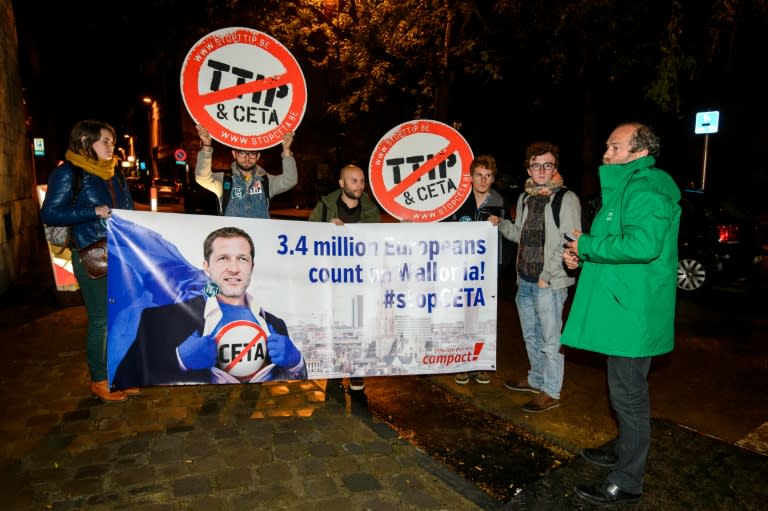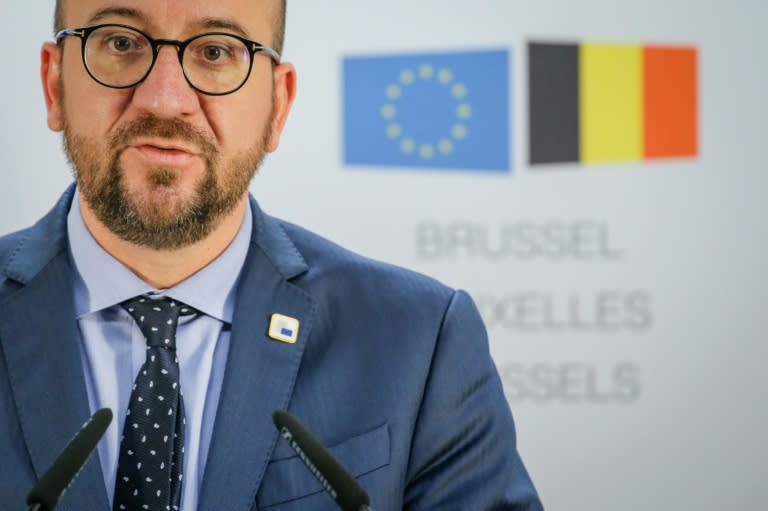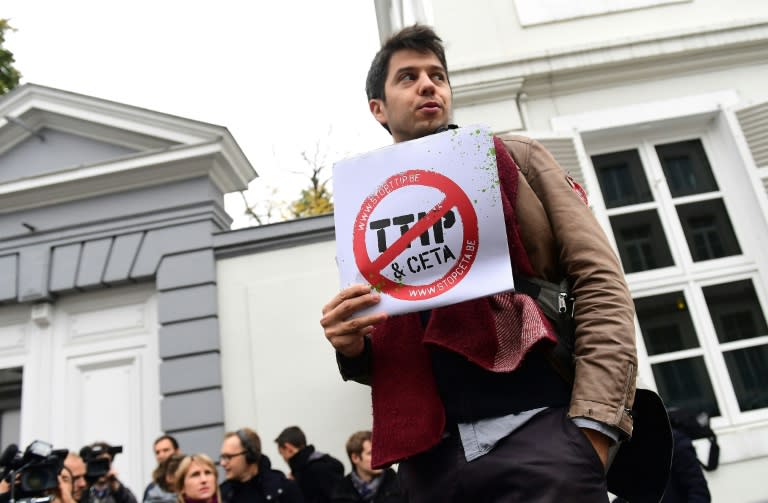How tiny Wallonia can torpedo landmark EU-Canada free trade deal
A landmark EU-Canada free trade accord was hanging by a thread Monday after the French-speaking region of Wallonia led a revolt against the federal government which backs the deal. Seven years in negotiation to 2014, two years in ratification and now a stumble at the last hurdle which threatens a signing ceremony in Brussels Thursday, due to be attended by Canadian Prime Minister Justin Trudeau. Here is a summary of Belgium's complex constitutional arrangements which allow the regions to trump the central government. - FEDERAL BELGIUM - Once a unified monarchy with strong national institutions, Belgium has slowly developed since the 1970s into a federal entity. This happened under intense pressure from the separatist-minded Flemish, fed up with perceived dominance by their southern, French-speaking compatriots since the creation of modern Belgium in 1830. The new set-up saw the creation of regions and linguistic communities, each with their own parliament and government that have grown increasingly powerful after a series of far-reaching constitutional reforms. The regional governments now have executive power over major policies. - POWERFUL REGIONS - French-speaking Wallonia, Dutch-speaking Flanders and the capital city of Brussels make up Belgium's three main "regions". Over the years, decision-making over major policy areas -- such as farming, environment, and economic development -- has gradually devolved to these regions. The so-called linguistic communities (Francophone, Dutch and Germanophone) control education, culture and public broadcasting. - DEVOLUTION - Each of the regions and communities has an elected parliament and government. This leaves Belgium with a total of seven elected assemblies: the geographic regions of Wallonia, Flanders and Brussels; the three linguistic communities; as well as a parliament and senate at the federal level. - DEAL RATIFICATION - When Belgium signs an international agreement, even one negotiated by the EU like CETA, each of the seven elected bodies must approve the deal. In general, this ratification can take place after the signature -- and provisional implementation -- of the deal. The process can take years. For CETA, the regional parliaments have been involved for months. After long consideration, lawmakers in Wallonia and the French linguistic community voted to reject the deal, on the grounds that it does not provide enough assurances on protecting the environment, farming or the role of multi-national companies. - NON WALLONIA, NON TRUDEAU - The EU needs the approval of each of the bloc's 28 member states to agree to the signature of the CETA deal. For Belgium to play its role, it in turn needs the green-light of its seven parliaments. On Monday, after a brief meeting of regional leaders, Belgian Prime Minister Charles Michel conceded he had failed to get unanimous backing and so was unable to sign off on CETA. "The federal government, the German community and Flanders said 'yes.' Wallonia, the Brussels city government and the French community said 'no'," Michel said. Unless there is some last-minute breakthrough in talks between EU officials and Trudeau late Monday, Thursday's signing ceremony is unlikely to go ahead.




